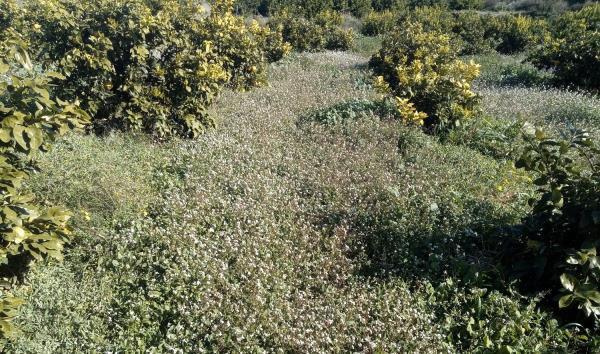ANSE and Anecoop agree to conserve pollinators on agricultural farms
Advice by expert entomologists on bees, plantations of flower-producing species rich in pollen and nectar, as well as the installation of refuges for wild bees will be the measures taken in the plantations that seek to qualify for the seal of quality and labeled "BEE FRIENDLY "
The agreement aims to act on 10 farms in the Autonomous Community of the Region of Murcia and the Valencian Community but firstly it will begin with three farms of Coop Frutas y Cítricos de Mula.
ANSE will provide monitoring and advice by an expert entomologist and IMIDA (Murcian Institute for Agricultural and Food Development and Research) to agricultural farms to ensure the conservation of pollinator populations and especially wild bees. In addition, the Association will provide seedlings of species rich in pollen and nectar to promote pollinator populations and allow their movement through agricultural landscapes as a measure of adaptation to climate change. Likewise, artificial shelters will be installed and supervised for the nesting of wild bees.
The Association make to remember that pollination is an ecosystem service (a natural process from which human populations obtain benefits, sometimes economic) that is essential for the conservation of biodiversity, the functioning of ecosystems and agricultural production. In the Iberian Southeast, bees constitute the most abundant group of pollinators (more than 80%). Although most people associate the term "bee" with the domestic bee (Apis mellifera), there is a high number of wild species (not domesticated) and in many solitary cases: only in Spain there are more than 1,000 species registered of bees.
Some international organizations such as IUCN (International Union for Conservation of Nature), the CBD (Convention for Biological Diversity) or the IPBES (Intergovernmental Platform for Scientific Policies for Biodiversity and Ecosystem Services) have drawn attention to the need to act to safeguard these species and the functions they develop in ecosystems and agricultural systems.
About Anecoop
In 1975, a group of Spanish citrus fruit cooperatives joined forces in order to expand their product range, reach new markets and improve their bargaining power with large-scale distributors.
They set up Anecoop, a second-tier cooperative or “cooperative of cooperatives”.
More information, please contact to:
Ms. Piedad Coscolla
pcoscolla@anecoop.com
+34 963 938 500





